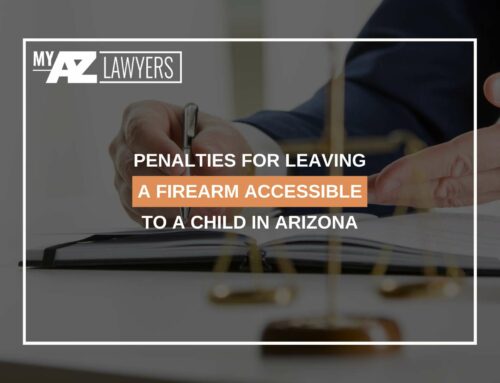Table Of Contents
Relocation & Child Custody After Divorce In Arizona
For many parents, the hardest part about getting divorced is not getting to see their children as much as while they were still married. Divorcing spouses with minor children will need to create a parenting plan, which lays out exactly when and how long the child will spend with each parent. Some parents are fortunate and agree that 50/50 custody is in the child’s best interests, or have another reason that they agree on a parenting plan rather than duking it out in court. But determining physical custody becomes more difficult if one or both parents wish to relocate to a new state (or country) after getting divorced. This can make joint physical custody and custody exchanges much more burdensome on the child and parents. This can also make it more difficult for the parents to come to an agreement on a relocation issue. Read on to learn more about specific issues within relocation matters in Arizona family law. For your free consultation with an experienced Phoenix-area custody lawyer, call 480-470-1504.

Relocation In Arizona Child Custody Matters
Arizona’s law for relocation in child custody matters is A.R.S. § 25-408. This law requires that a parent with joint custody of their child must provide at least 45 days’ notice to the other parent before relocating the child out of state or relocating the child more than 100 miles within Arizona. There are exceptions for a parent with sole custody or one who is experiencing health, safety, employment, or eviction issues. It should be sent by certified mail, return receipt requested. The court can impose sanctions on a parent for failing to provide proper notice, but can only sanction that parent’s custody rights in accordance with the child’s best interests. If the other parent opposes the move, they have 30 days to petition the court to prevent the child’s relocation.
A judge deciding on a relocation matter in an Arizona family law case will need to consider factors related to the child’s best interests, which can be found below. The judge should considered if the move is being made in good faith, and if the move might actually improve the child’s quality of life. The judge should also consider if the parent making the move is likely to comply with custody orders and if the child will be able to maintain a relationship with their other parent after the relocation. To review other factors that could arise in your Arizona relocation matter, contact our firm for your free consultation at 480-470-1504.
Child’s Best Interests In Arizona Custody Matters
Arizona law requires that custody matters are decided in accordance with the best interests of the child. Arizona family law lays out 11 factors that are relevant to a child’s best interests, in addition to any other factors that may be relevant to the unique situation.
- Past, present, and potential future relationship between parent and child
- Interaction and interrelationship of the child with their parent or parents, siblings, or anyone else who might significantly affect their best interests
- The child’s adjustment to home, school, and community
- If the child is of a suitable age and maturity level (most courts agree that this is about 12 years old), their own wishes for a custody plan
- The mental and physical health of all individuals involved
- Which parent is more likely to allow frequent, meaningful contact with the other parent
- Whether one parent has intentionally misled the court to cause an unnecessary delay, increase the cost of litigation, or to persuade the court to give favor to that parent
- Whether there has been domestic violence or child abuse
- The nature and extent of coercion or duress used by a parent in obtaining a custody agreement
- Whether the parent has complied with other chapters of Arizona family law
- Whether either parent was convicted of an act of false reporting of child abuse or neglect
As you can see, several of these factors automatically are or could become relevant if one or both parents wish to relocate after the divorce. The child’s relationship with their parent could be damaged by a potential move, or it might not make sense to relocate a child with a parent with whom they don’t have a great relationship. The same goes for any siblings, stepparents, stepsiblings, and other household members joining in the relocation. Courts tend to agree that consistency is good for growing children, and tend to sway against upheaving their routines for a parent’s move. If the child is old enough, they can let their opinion on relocation be known and have it taken into account. The court should not award custody to a parent who appears to be relocating to drive a wedge in the relationship of the child with their other parent. For more assistance in reviewing Arizona’s child’s best interests factors and how they pertain to your situation, contact our firm for your free consultation at 480-470-1504.
Modifications To Child Custody Orders
If you wish to permanently relocate to another area in a way that will conflict with your existing custody orders, you will probably want to request a modification from the court. This process doesn’t happen instantaneously, so a parent should always start planning well in advance of the date of the move. Emergency modifications can only be granted if the child’s welfare is in immediate jeopardy. Additionally, the court should only grant a custody modification if at least 12 months have passed since the last orders were issued. You can find more information about child custody modification in Arizona in A.R.S. § 25-411. If you want to review this information with a skilled Arizona custody lawyer, call 480-470-1504 for your free consultation today.
Negotiating a New Parenting Plan
Just because you’re ready to work out a new parenting plan with your ex doesn’t mean that they will be ready to do the same. But taking the matter before the judge increases time, costs, and the risk that neither parent will be happy with how the issue is resolved. It may require a great deal of patience and persistence to negotiate a new parenting plan with your child’s parent. Communicating with your ex (or your ex’s attorney) so frequently could be painful and burdensome. Retaining your own custody attorney reduces how emotionally involved you have to be in negotiating your new parenting plan. Your attorney can run tactics and decisions by you, but will be largely responsible for the negotiation of your new child custody agreement. Reaching a settlement agreement allows the parents to maintain greater control over the situation than letting the issue proceed before a judge.
Frequently Asked Questions
What should I do if my ex wants to relocate with my child and we don’t have a custody agreement in place?
This type of situation is a perfect illustration of why it is so important to have formalized custody and child support orders in place. Custody orders provide protection for events like relocation, withholding visitation, parental alienation, and more. If you don’t have orders yet, you will need to request them as soon as possible, preferably before the move occurs.
At what age does the child’s opinion become relevant for custody determinations?
This varies on a case-by-case basis depending on the child’s age and maturity level. Most courts start considering a child’s opinion starting at about 12 years old. So if you have an older child who doesn’t want to relocate with one parent, the judge might consider this while ruling on the issue.
How much notice should a parent provide before moving with a child?
Absent specific provisions in their custody agreement, a parent should provide at least 45 days’ notice before relocating with a child. This gives the other parent time to prepare their response and potentially fight the relocation.
What is parental alienation?
Parental alienation is an effort by one parent to destroy the child’s relationship with the other parent. A relocation could actually be part of a larger scheme to alienate the child. The court will consider whether a move is being made for good cause or simply to drive a wedge in the parent-child relationship.
Who pays for long-distance visitation after a relocation?
Plane tickets, transportation, and other costs associated with long-distance visitation can add up quickly. Each situation will conclude differently, as the judge should take several factors into account when deciding who should be financially responsible for long-distance visitation costs. This is one of the times during this type of case where it can be useful to have an attorney- while it will come with up-front costs, the expenses saved from long-term long-distance visitation could be much higher.
What happens if a parent doesn’t respond to a Notice of Intent to Relocate within 30 days?
The parent can lose their right to fight the relocation if they fail to respond within the prescribed timeframe. If there is some extenuating circumstance that kept the parent from filing a response, the parent might be allowed to proceed with a showing of good cause.
What if we know a relocation is imminent but just don’t know when?
You can plan for a potential relocation in your custody orders when you make them, even if you don’t know exactly when or where the relocation will be. Here, you should retain a skilled custody lawyer to make sure that your orders are clear and achieve your desired goals. The court may also allow temporary relocation until longer-term orders can be finalized.
Start Your Relocation Journey With Arizona’s Trusted Family Law Team
Custody issues aren’t just stressful for how complex they are- they are also stressful because of how much is on the line. Any mistaken judgment calls throughout your case could result in less time with your child which you can never get back. Our Arizona family law team is experienced in achieving positive outcomes in situations similar to yours. We offer free consultations so you can discuss your case and decide how you would like to proceed without risk or obligation. When you’re ready to get started with your free consultation by phone, call 480-470-1504.
Arizona Offices:
Mesa Location:
1731 West Baseline Rd., Suite #100
Mesa, AZ 85202
Office: (480) 448-9800
Email: [email protected]
Website: https://myazlawyers.com/
Phoenix Location:
343 West Roosevelt, Suite #100
Phoenix, AZ 85003
Office: (602) 609-7000
Glendale Location:
20325 N 51st Avenue Suite #134, Building 5
Glendale, AZ 85308
Office: (602) 509-0955
Tucson Location:
2 East Congress St., Suite #900-6A
Tucson, AZ 85701
Office: (520) 441-1450
Avondale Location:
12725 W. Indian School Rd., Ste E, #101
Avondale, AZ 85392
Office: (623) 469-6603












